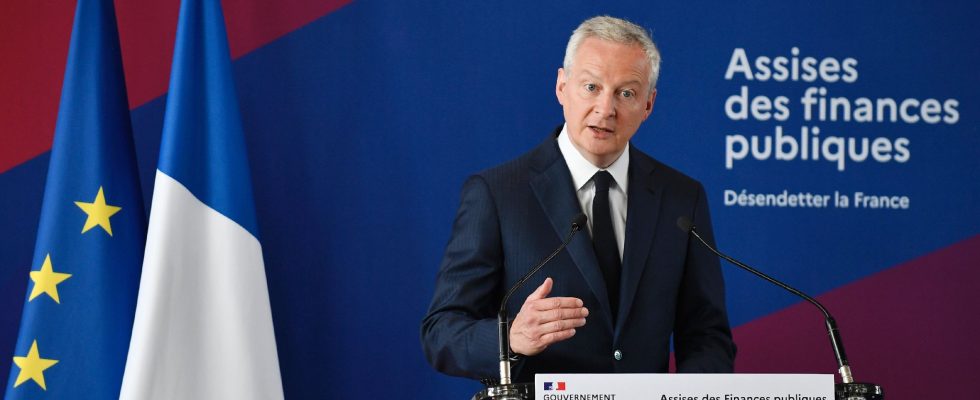A few days ago, the solemn Assises des finances publics took place, an event organized by Bercy and overseen by the Prime Minister herself, aimed at signaling the end of “whatever the cost” and the entry into a period of budgetary discipline. On paper, there’s not much to complain about. The need to better regulate our public expenditure should be the subject of a fairly broad consensus, if we are willing to admit that it is difficult to increase compulsory levies in one of the countries in the world where they are the higher, and if we are wise enough to consider that increasing public debt without limit is not a risk-free macroeconomic strategy. The subject is not only financial. This year, the State will have to seek on the markets 270 billion euros to finance its deficits. This figure is colossal, and places us in a situation of subordination in relation to foreign countries. General de Gaulle could not bear the idea that France’s public debt would increase because he did not tolerate the latter losing its independence.
The eternal logic of the plane
Let’s go back to the Assises des finances publics. This kind of meeting is not completely useless. In this case, putting an end to Pinel, the tax advantage conferred on certain rental investments, or combating abusive work stoppages are measures that have their logic. But, clearly, we miss the point, for two reasons. The first is that despite the government’s denials, it is still the logic of the plane that prevails. Thus, spending is being cut, without seriously evaluating the economic and financial impact of these cuts, and above all without changing anything in the structures of the public sphere. The Association of Mayors of France led by David Lisnard and that of the Regions of France led by Carole Delga boycotted this meeting. We can understand them. The State regards local authorities as sub-contractors, deprives them of their fiscal autonomy, fixes the salaries of the civil service, including territorial ones, and ultimately gives them lessons in sound management. Instead of this horrifying behavior, we would prefer an in-depth debate on decentralization and the sharing of responsibilities between the central state, the decentralized state and communities.
A cultural vice
The second reason which makes the Assizes exercise a little futile is that it does not touch the heart of the inflation of our public expenditure. The vice of our system is cultural. It can be stated as follows: in France, any problem is solved by a public policy, any public policy is solved by public expenditure. Are the emergency rooms overcrowded? We release 150 million euros – since the time we have been freeing up money for the hospital, it is difficult to understand why the wait there exceeds thirty seconds. Should we help aircraft manufacturers to innovate more? The President of the Republic himself provides 200 million euros for green fuels – a form of assistance to our industrial jewels. Is the homelessness getting worse? The minister unearths an envelope of 500 million euros – when it would be appropriate to lift the brakes on construction. Less than forty-eight hours after recalling the need to reduce our public deficit, the Prime Minister announced the extension of aid of 500 euros for the driving license for students in vocational high schools. Even in areas far removed from the economy, the reflex is to solicit public money. Thus, the other day I heard the head of an association against violence against women explain that if this violence was more numerous, it is because the financial support of the State for this cause was insufficient.
In France, public authorities are considered to be the service firefighter. She is supposed to hold her spear open to billions and shower every household with losses. The regulation of public expenditure must therefore begin with an educational effort, to explain that the State is not an abstract entity, but the pooling of the resources of each French person. To claim a public expenditure is to claim tax or debt. The only worthwhile spending reduction plan is one that would consist of thinking and acting differently rather than constantly demanding anything and everything.
* Nicolas Bouzou is an economist and essayist.
